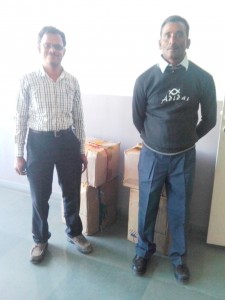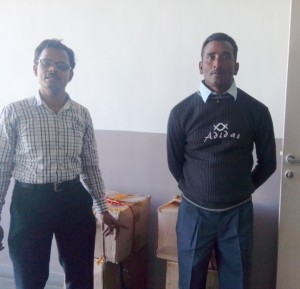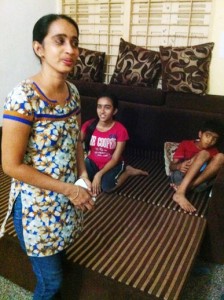In Gujarat, there are many blood banks and many generous blood donors. As we all know that blood banks thrive or operate when somebody is kind enough to donate blood voluntarily or by a campaign basis.
Ahmadabad is considered to be the financial capital of Gujarat and is also one of biggest cities of Gujarat. So, you can consider that it is also one of the populated cities. Now when a city is populated, there is bound to be demand of blood because of many health reasons. Let us see what and where of blood banks available in Ahmadabad.
WHAT IS A BLOOD BANK?
In a layman’s term, a blood Bank is a place where blood is given to patients who are in need of blood in their body because of accident, trauma, burn, operation etc.
As per Wikipedia, “A blood bank is a bank of blood or blood components, gathered as a result of blood donation, stored and preserved for later use in blood transfusion. The term “blood bank” typically refers to a division of a hospital laboratory where the storage of blood product occurs and where proper testing is performed to reduce the risk of transfusion related events.
Blood banks were earlier found only in hospitals. Now, they have come outside of hospitals in form of NGO’s or independent units offering service to people.
Blood banks in Gujarat have spread in villages as well apart from cities in last 10 years. This has helped rural villages to gain medical facilities in less cost and effective medical treatment.
LIST OF BLOOD BANKS IN AHMADABAD WITH THEIR ADDRESS AND CONTACT NUMBERS.
Here are some major and good blood banks in Ahmadabad with their address as well as contact numbers. It is good and important to keep a small list of them for emergency need in future for you or for your relatives.
Adarsh Path Lab & Voluntary Blood Bank
Ist Floor, Samjuba Hospital, Bapunagar,
Ahmedabad – 380 024
Tel:+(91)-(79) – 22746672
Ami Pathology Lab And Blood Bank
Grd Flr, Laxmi Chambers, Ramnagar, Sabarmati
Ahmedabad – 380 005
Tel:+(91)-(79) – 27501202
Help Voluntary Blood Bank
4-7, Kotyark Complex,
Opp. L.G Hospital
Maninagar
Ahmedabad – 380 008
Tel:+(91)-(79) – 25463028
Mahagujarat Blood Bank
21, Parth Empire, Rambaug,
Near Maninagar fire station
Maninagar
Ahmedabad – 380 008
Tel:+(91)-(79) – 25451331
And
| |
| C-13, First Floor,Soham Complex, Soni Chawl Char Rasta,National Highway No 8, Odhav,Ahmedabad – 382415 |
|
|
| |
|
Ashish Voluntary Blood Bank
A-103/104, Aasthan Complex, Panjarapole,
Ahmedabad – 380 015
Tel:+(91)-(79) – 26303090
Guj Blood Bank
101, Span Trade Centre,
Elllisbridge,
Ahmedabad – 380 006
Tel:+(91)-(79) – 26584893
Green Cross Voluntary Blood Bank
201, Anilkunj, Nr Shefail Shopping Centre, Paldi,
Ahmedabad – 380 007
Tel:+(91)-(79) – 26577588, 26588824
Karnavati Blood Bank , Naranpura
36, Shubhlaxmi Complex, Naranpura ,
Sheth V.S. General Hospital &
Blood Bank
Ellisbridge
Tel: 079-26577621
Ahmedabad
Sheth L.G. General Hospital & Blood Bank
Maninagar
Tel: 079-25461380 to 84
Indian Red Cross Society Blood Bank
18, Gujarat Brahmkshatriya society,
Behind Suvidha Shopping Complex,
Paldi. Ahmedabad
Tel: 079-26643833
Prathma Blood centre
Behind Jivaraj Maheta Bhavan ,
Vasna .Ahmadabad
Tel: 079-26600101
Crossworld Bank (Voluntary) & Sankalp Diagnostic
3-U/G Chandraprabhu Complex,
Sardar Patel Cross Road.
Ahmedabad
Tel: 079-26568004, 26401959
White Cross Blood Bank (Voluntary)
2nd Floor, Kandhari Building,
Opp.S.T. Workshop, Naroda Patiya
Ahmedabad
Tel: 079-22815227
Shrinath Pathology Laboratory & Voluntary Blood Bank
F-3, Keshav Complex, India Colony,
Bapunagar.
Ahmedabad
Tel: 079-22760861
Supertek Voluntary Blood Bank
‘Malkosh’, Opp.Krupa Petrol Pump,
Parimal Cross Road.
Ahmedabad
Tel: 079-26408181 to 83
Ashirvad Blood Bank and Sperm Bank
291 Sky View Complex
Gandhi Nagar,
Ahmedabad
Tel: 079-23221584
Shalby Hospital
Bokadev road,
Sarkhej Gandhinagar Highway
Ahmedabad
Tel: 079-40203000, 40203154
Gujarat Cancer & Research Institute (GCRI ) New Civil Hospital Campus,Asarwa, Ahmadabad, – 380016Tel: 079 – 22688000, 22681433, 22688017
Samarpan Vidhyapith, Jodhpur Tekra,Near Ramdevnagar Bus Stand,Satellite, Ahmedabad-380015
Tel: 079 – 26860197, 26861055, 26862079, 55125402















